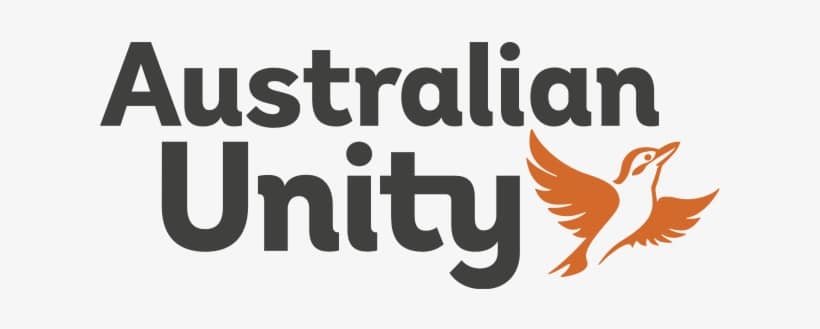Why compare health insurance through Savvy?
Our comparison tool doesn't cost you a cent, allowing anyone to compare offers from trusted insurers around Australia for free.
You can consider the inclusions, premiums, benefits and other key factors easily with us, whether you're at home or on the go.
Considering offers from trusted insurance providers can help give you peace of mind that you're comparing high-quality policies.
Brands you can compare with us



We’ve partnered with Compare Club to bring you a range of health insurance policies to compare side by side.
Buying the right overseas student health cover whilse studying in Australia is almost as important a decision as which course to study at university. Getting the right student health insurance is so important because it can potentially save you thousands on the cost of health care treatment.
You can compare different health insurance policies online right here through Savvy. Our partner’s panel of leading Australian insurance companies will send you policies to compare after answering just a few easy questions. Get your OSHC sorted out through Savvy!
What is Overseas Student Health Cover (OSHC)?
Overseas Student Health Cover is a specific type of health insurance designed to help overseas students meet the costs of their health needs while studying in Australia. It includes cover for public hospital admissions, and may provide assistance with the cost of general health treatments received in a community setting such as dental care, physiotherapy or chiropractic treatment. It also includes cover for ambulance transport.
The Australian Government has set minimum standards for what must be covered by an OSHC policy. It's necessary for most students considering studying in Australia to buy such a policy before many types of student visas are issued.
Exemption from needing to buy an OSHC policy
However, there are countries which have special arrangements in place that may allow international students from these countries to be issued with an exemption for the need to hold an OSHC policy whilst studying in Australia. These countries are:
- Sweden
- Norway
- Belgium
If you are a potential student from one of these countries, check with the Department of Home Affairs to see if you qualify for an exemption.
Which health funds offer OSHC policies?
There are currently six private health insurers who are permitted to offer OSHC insurance in Australia (as of February 2023). These insurers are:
- ahm
- Allianz Global Assistance (Peoplecare Health)
- BUPA Australia
- CBHS International Health
- Medibank Private
- NIB
What is and isn’t covered by an OSHC policy?
The requirements for an OSHC policy set out the benefit standards which must be offered by the policy. These benefit standards are related to the costs outlined in the Medicare Benefits Schedule (MBS), which is an approved list of services covered by the Medicare scheme. The minimum level of benefits that are permitted to be paid by an insurer offering an OSHC policy are:
- 100% of the MBS fee for professional services offered by doctors, surgeons and anaesthetists for hospital-admitted patients
- 85% of the MBS fee for services provided by a general practitioner for non-hospital admitted patients
- 85% of the benefit amount for other specialist consultations, pathology services, diagnostic imaging services and other specialist procedures for non-hospital admitted patients
In reality, what this covers you for (either partly or totally) as an overseas student includes:
- Hospital admission and accommodation either as a public or private patient
- Emergency department fees resulting in a hospital admission
- All patient care and post-operative services required after discharge from hospital
- All visits to doctors (GPs)
- Benefits toward the out-of-pocket cost of pharmaceuticals in excess of the PBS general contribution
- Ambulance transport cover
However, some of the exclusions that may apply to your OSHC are:
- Any treatment provided outside the country, including treatment en route to or from Australia
- Services covered by other insurance or compensation claims (such as if you’re injured by a third party and claim on their public liability insurance)
- Medical treatments arranged prior to arrival in Australia
- Laser eye surgery
- Some alternative medicines and treatments, including iridology
- Elective surgical procedures (such as cosmetic breast augmentation, for example)
- Medical procedures not considered medically necessary (for example, tattoo removal)
- Assisted reproductive treatments (such as IVF)
- Stem cell, bone marrow and organ transplants
What are the waiting periods which apply to health insurance for overseas students?
The waiting periods that apply before you can claim on your health insurance policy are also regulated by the Australian Government through the Deed for the Provision of Overseas Student Health Cover. Waiting periods specified by this Deed are:
- 12 months for pre-existing conditions
- 12 months for pregnancy-related conditions
- 2 months for pre-existing psychiatric conditions
Waiting periods do not apply to emergency treatments.
How do I compare different health insurance policies to help me find the best one?
As explained above, all OSHC policies offer the same basic legal minimum level of cover. The differences lay in the additional benefits which may be offered over and above the legal minimum requirements. The cheapest policy will generally offer the fewest additional benefits, if any. These additions can include a benefit limit to assist with repatriation to your country of origin, for example.
These are the things to check and compare when deciding which health insurance policy is the right one for your needs. The cheapest policy may not offer the best value overall, so it pays to compare policies carefully:
- Check the policy complies with the minimum requirements for your visa
- Does the policy offer any coverage for dental treatment?
- What are the benefit limits for other services which aren’t covered by Medicare, such as optical services?
- Does the policy cover pregnancy and obstetrics care if it’s relevant to you?
- What is the allowance (if any) for repatriation to your homeland in the event of severe injury or death? This can range from $5,000 up to $25,000 or more
What is the process for getting my OSHC in place?
You can purchase OSHC through several channels, including:
- Your education institution or university
- A migration agent
- An education agent acting as an intermediary
- Direct from the insurer
However, Savvy can help you find and buy an appropriate OSHC policy. We help make finding health insurance easy for overseas students. The process through Savvy is:
- Answer a few simple questions about the insurance you need, your age, where you’re from, and when you are going to arrive in Australia
- Submit your quote form and you’ll receive a call back from a health insurance specialist to discuss your coverage options
- If you’re happy with the options available to you, you can go ahead and purchase your policy and lock in the cover you need to apply for your student visa
The types of health insurance
More frequently asked questions about OSHC
Many visa classes have a condition which requires you to hold appropriate health insurance. This condition is known as the ‘8501 condition,’ and it applies to:
- International Student Visa (subclass 500)
- Student Guardian visa (subclass 590)
- Training visa (subclass 407)
- Temporary Skill Shortage visa (subclass 482)
- New Zealand Citizen Family Relationship visa (subclass 461)
However, this list is not exhaustive and there are many other visa subclasses to which the 8501 condition applies.
If you've already served waiting periods to be able to claim on your private health insurance policy, you may not have to serve these waiting periods over again. However, this will depend on your circumstances, so check with your insurer to see what conditions apply.
The Department of Home Affairs policy states that it's a visa requirement that a student maintains adequate health insurance for the duration of their student visa period. Proof that you have adequate insurance for the duration of your stay must be provided before a visa will be granted. This may involve pre-paying your health cover for up to a year to receive your visa. If you do let your health insurance policy expire, you may be in breach of your visa requirements and should seek urgent expert advice as to the consequences of this happening.
No – your visiting family members won't be covered by your student health cover policy. Your family will either have to take out Overseas Visitors Health Cover if they intend to stay in Australia for an extended visit, or health insurance offered as part of their travel insurance policy.
Helpful guides on health insurance
COMPARE HEALTH INSURANCE TODAY
Disclaimer:
Savvy is partnered with Compare Club Australia Pty Ltd (AFS representative number 001279036) of Alternative Media Pty Ltd (AFS License number 486326) to provide readers with a variety of health insurance policies to compare. Savvy earns a commission from Compare Club each time a customer buys a health insurance policy via our website. We don’t arrange for products to be purchased from these brands directly, as all purchases are conducted via Compare Club.
Savvy’s comparison service is provided by Compare Club. Compare Club compares selected products from a panel of trusted insurers and does not compare all products in the market.
Any advice presented above or on other pages is general in nature and doesn’t consider your personal or business objectives, needs or finances. It’s always important to consider whether advice is suitable for you before purchasing an insurance policy.
For any further information on the variety of insurers compared by Compare Club or how their business works, you can read their Financial Services Guide.












